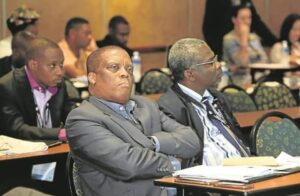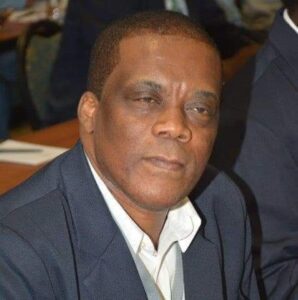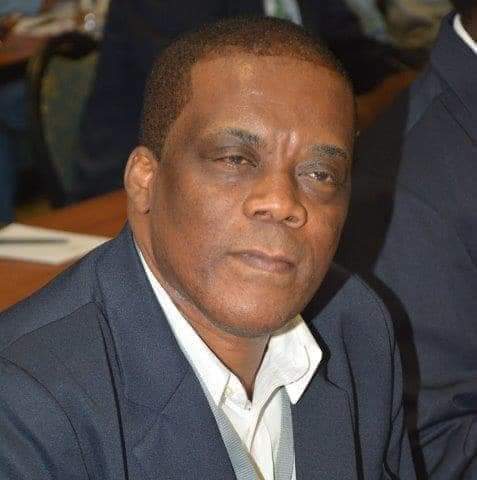A Nigerian professor, Edwin Okey Chikata Ijeoma, who renounced his country’s citizenship in favour of South Africa, has been expelled from the country after he was found guilty of engaging in a bigamous marriage.

Ijeoma, a professor of Public Sector Economics at the University of Fort Hare, was indicted after he was found to have gotten married to a South African woman in a bid to gain naturalization and citizenship, while still married to his Nigerian wife, Anne Tomo, and had his citizenship revoked by the Ministry of Home Affairs on Monday.

Ijeoma who arrived in SA from Nigeria on a study permit in 1998 to pursue academic studies at the University of Pretoria, obtained a PhD in economics in 2003. He was granted permanent residence in SA in the same year he graduated, after he renounced his Nigerian citizenship but by 2007, he had divorced his South African wife, ostensibly because the couple was unable to conceive a child.
He was then joined in SA by his Nigerian wife, Anne, and the Home Affairs officials were tipped off that Ijeoma had committed bigamy by marrying the SA woman after Tomo, in her application for permanent residence, attached a copy of her 1993 marriage to him in Nigeria.
In 2005, Ijeoma took the Home Affairs Ministry to the Bhisho High Court, but in a 2020 judgment, the court held that the ministry had not erred in its findings that he had made false representations about his marital status to the department and his SA citizenship was null and void.
Home Affairs officials insisted that Ijeoma’s sole mission in marrying the SA woman was to acquire citizenship.
Acting judge Mickey Mfenyana has denied Ijeoma leave to appeal the ruling, stating that another court will not differ from her finding that he was “disingenuous, if not dishonest, and that there was no reason to interfere with the ministry’s decision.”
The confirmation of the Home Affairs action rendering him an undesirable inhabitant of the country means Ijeoma now has nowhere else to go.
In her original judgment, Mfenyana found that Ijeoma had presented contradictory reasons for his bigamous actions, that, as an African man, he believed he was entitled to marry more than one wife, and that he represented himself as single because he was not aware SA recognised customary marriages.
She said he failed to disclose the existence of his marriage in Nigeria on three occasions: when he applied for permanent residence in SA, when he got married in the country and when he applied for citizenship.
“An academician, who by his own admission is of good and sound mind and an intellectual giant, should know that it was highly improbable that, throughout his stay in the country and his encounters with immigration matters, he remained ignorant of the implications of not disclosing his Nigerian wife
Mfenyana added that the exemption certificate Ijeoma got clearly indicated the marriage was the basis for his exemption and he had also admitted during a 2015 plea for Home Affairs to have compassion on him, that he obtained citizenship by naturalisation as a result of the marriage.
“Home Affairs provided the court with the certificate for Ijeoma’s marriage in Nigeria to dispel the notion it was a customary marriage. In any case, the Nigeria Marriage Act prohibited marriage where one of the parties was already married to another person under customary law.
“In two immigration submissions in SA, when he had to indicate an immediate family member still residing in Nigeria, Ijeoma listed Anne Ijeoma as his sister”, the judge said.






